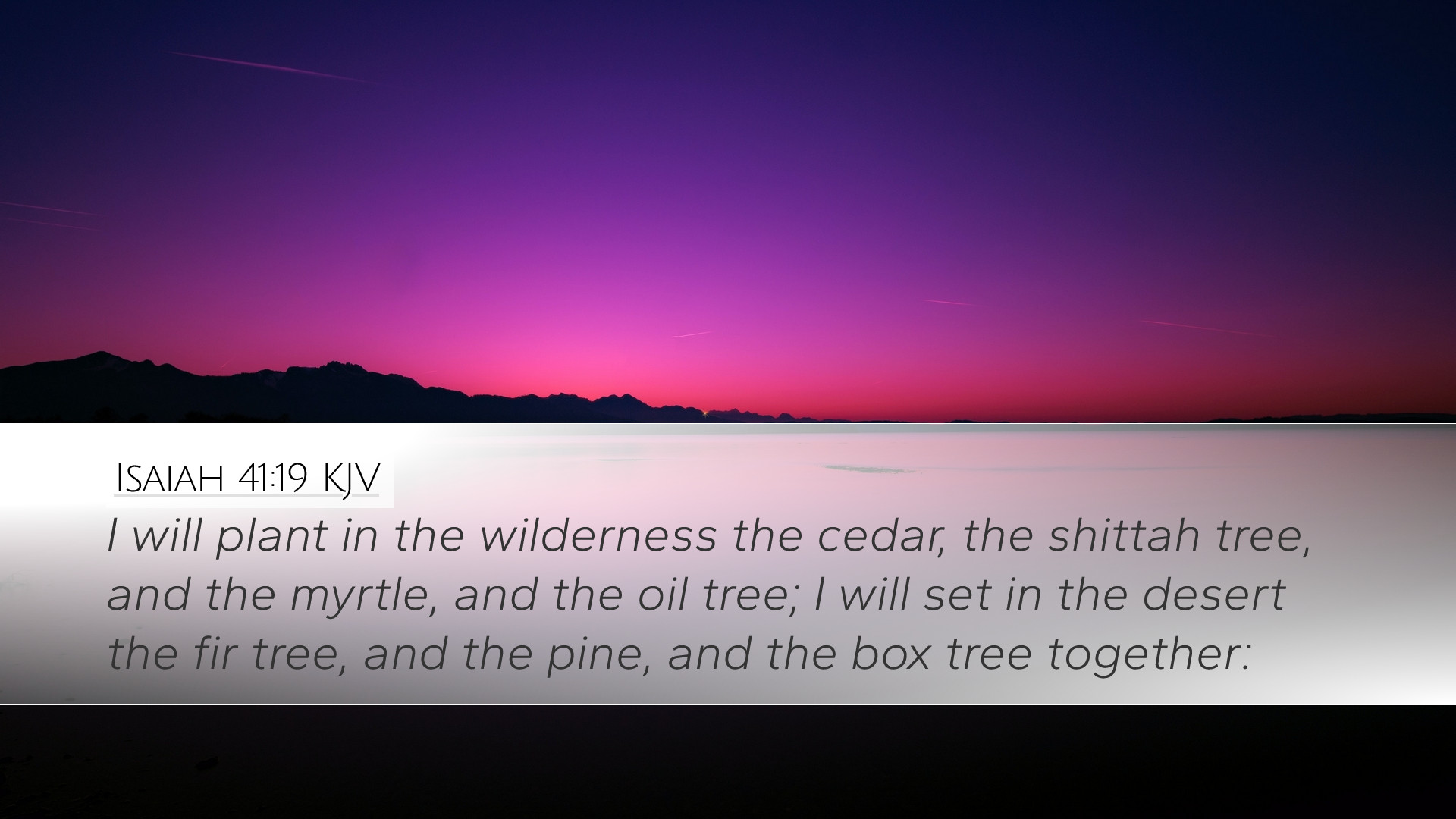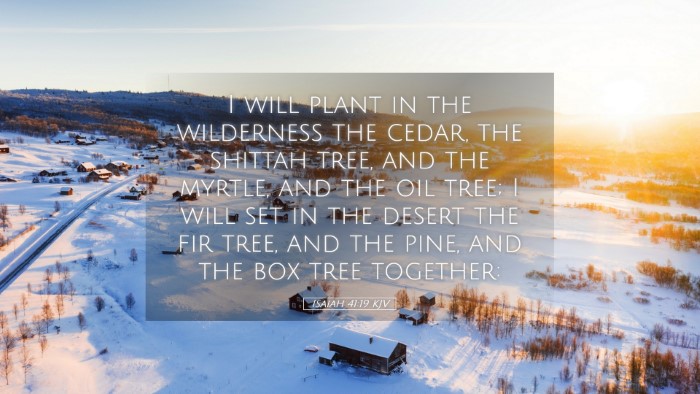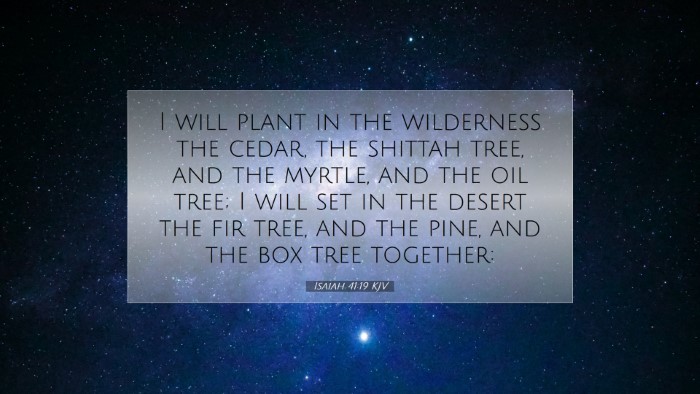Commentary on Isaiah 41:19
Verse: "And I will plant in the wilderness the cedar, the acacia tree, and the myrtle and the oil tree; I will set in the desert the fir tree, and the pine, and the box tree together."
Introduction
This verse from Isaiah highlights God's capability and intention to bring life and abundance to what appears desolate and barren. It reflects His power to transform the wilderness into a flourishing landscape. The implications of this promise are manifold, providing hope and assurance to believers. In this commentary, we will explore insights from notable public domain commentators such as Matthew Henry, Adam Clarke, and Albert Barnes.
God's Sovereignty Over Creation
Throughout Scripture, God's sovereignty is a recurring theme, and it is poignantly illustrated in this verse. As Matthew Henry notes, the act of planting trees in a wilderness setting emphasizes God's authority to effect change in creation. Trees, often symbols of life and stability, signify God's ability to bring vitality even in inhospitable environments.
Nature as a Testament to God’s Power
Clarke remarks on the significance of using various species of trees such as the cedar, myrtle, and fir. Each tree has its own attributes: cedars are known for their strength, myrtles for their fragrance, and firs for their beauty. The diversity of trees symbolizes the richness of God’s blessings, implying that His providence meets the needs of every situation.
The Context of Restoration
This verse stands within a broader context in Isaiah, where the prophet comforts a people mourning their exile. Barnes emphasizes that the planting of trees signifies restoration and renewal, extending an invitation to Israel to hope for divine intervention in their lives.
Wilderness as a Metaphor
The wilderness can also be seen as a metaphor for spiritual barrenness. Just as God can transform a physical desert into a thriving ecosystem, He can revitalize the souls of those spiritually distressed. This transformation is not merely external; it signifies an inner renewal and regeneration.
Theological Implications
Theologically, this verse speaks powerfully about God’s redemptive work. Henry articulates that God is the ultimate gardener, taking barren places and making them fruitful. This reflects a broader biblical principle: God often brings forth life from death, hope from despair, and abundance from scarcity.
Importance of Divine Intervention
In connection with God’s promise, Clarke brings to attention the necessity of divine intervention in barren situations. As humans, we often encounter circumstances that feel impossible. However, this verse reassures us that God has the power to transform our lives. The planting of trees illustrates His forthcoming provision, offering both physical and spiritual sustenance.
Application for Believers
For pastors, students, and theologians, this verse serves as a foundational reminder that in the midst of challenges, God remains faithful. It emphasizes the importance of faith and trust in God during times of wilderness.
Hope in Desperation
As believers reflect on their own 'deserts' — be it personal struggles, societal issues, or communal challenges — this verse encourages them to look for signs of God’s work. Barnes encourages readers to maintain hope and actively seek God’s promises even in the most desolate times.
Conclusion
Isaiah 41:19 encapsulates the promise of transformation and hope that God extends to His people. By planting various trees in the wilderness, God not only signifies restoration but also invites believers to acknowledge His sovereignty and redemptive capabilities. As we behold the desolate areas of our lives, may we cling to the assurance that God is actively working to bring about renewal and growth.
Key Takeaways
- God’s Sovereignty: He is powerful enough to transform the barrenness into abundance.
- Diversity of Blessings: The variety of trees illustrates God’s provision for every need.
- Hope in Restoration: The planting of trees symbolizes hope and revitalization amidst despair.
- Faith in Action: Believers are encouraged to seek God's intervention actively during difficult times.


